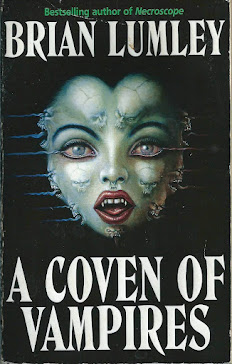3/5 Stars
Alvin Toffler’s 1970 book ‘Future Shock’, as well as being a bestseller, exerted significant influence on both the intellectual and pop cultures of the US. Not surprisingly, many mainstream and SF authors incorporated elements of Toffler’s depiction of the near – future into their work. Lawrence Sanders (1921 – 1998) certainly did so in his 1975 novel ‘The Tomorrow File’; this is the 1976 Berkeley paperback edition.
The book, at 551 pages, is very much a lengthy 70s novel, akin to those produced by James Michener and James Clavell. This is not necessarily a bad thing; unlike many writers nowadays, those authors were quite familiar with the format of the long novel and were reasonably adept at creating and sustaining a prolonged narrative peopled with a large cast of characters.
‘The Tomorrow File’ is set in 1998, by which time the federal government has grown in size and influence to the point where it supervises and regulates practically every aspect of human life. Social concepts regarded with Future Shock-style trepidation in the 70s, such as eugenics, legalized narcotics, and extremely permissive social mores, are taken for granted, as are technological marvels such as supersonic passenger planes, videophones, and synthetic food and drink.
The first-person narrator is Nicholas Bennington Flair, a bureaucrat in the ‘Department of Bliss’ (formerly the Department of Health, Education, and Welfare). Flair is brilliant and ambitious and determined to ruthlessly apply the principles of ‘scientific’ management to the ordering of American society. In this he is ably assisted by his sometime boyfriend and second-in-command, Paul Bumford (wink-wink).
The first 25 pages of the novel are something of a slog as Sanders giddily burdens the reader with a bewildering variety of sci-fi terms, Newspeak, and slang as imagined to be spoken in 1999. Once these terms are familiarized, the storyline can be grasped a little more easily.
Sanders had previously published the techno-heist thriller ‘The Anderson Tapes’ (1970), and the best-selling, 566 pp. detective novel ‘The First Deadly Sin’ (1973). Similarly, ‘File’ is at heart a high-tech detective story in which Nick Flair and his organization work to expose covert power-plays by unscrupulous government personnel.
The novel features plenty of satirical humor, as the narrator relates, in a deliberately deadpan tone of voice, various aspects of 1999 life that readers of 1975 would find outrageous and unsettling. Many of these outrages are extrapolations of the worst excesses of cultural attitudes as laid out in novels such as ‘A Clockwork Orange’; for example, casual sex with both genders is widespread and guilt-free; the best-selling toy in the world is a doll that defecates; enemies of the state are killed not by execution, but by involuntary participation in underground biomedical experiments; and television channels show nothing but pornography (‘The Twenty-Six Best Positions’) to a narcotized audience of viewers.
There are times when the length of ‘The Tomorrow File’ works against it, even though Sanders takes pains to keep the action constantly moving, shuttling in new characters and new challenges for Nick Flair and his team of operatives. However, Sanders tips the ending well before the last chapter, and I suspect the final few sentences of the book will not surprise many readers.
I doubt many contemporary readers, raised on the near-future settings of cyberpunk, will find much that is innovative or stimulating about ‘The Tomorrow File’; in fact, they will probably find the book’s concepts and mordant tone rather dated and obsolete.
But those older SF fans who grew up during the 70s, and remember the influence of ‘Future Shock’ on that era, may want to give Sanders’s novel a look, if only for nostalgia’s sake.

























